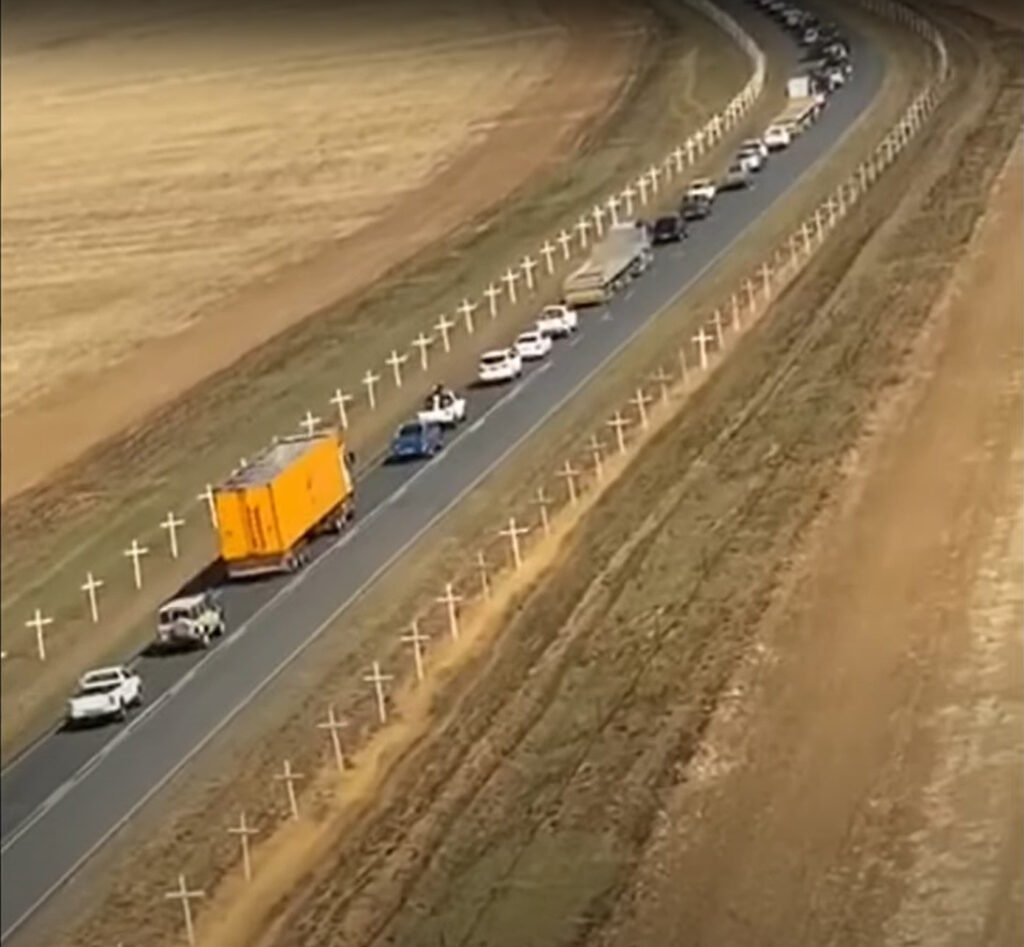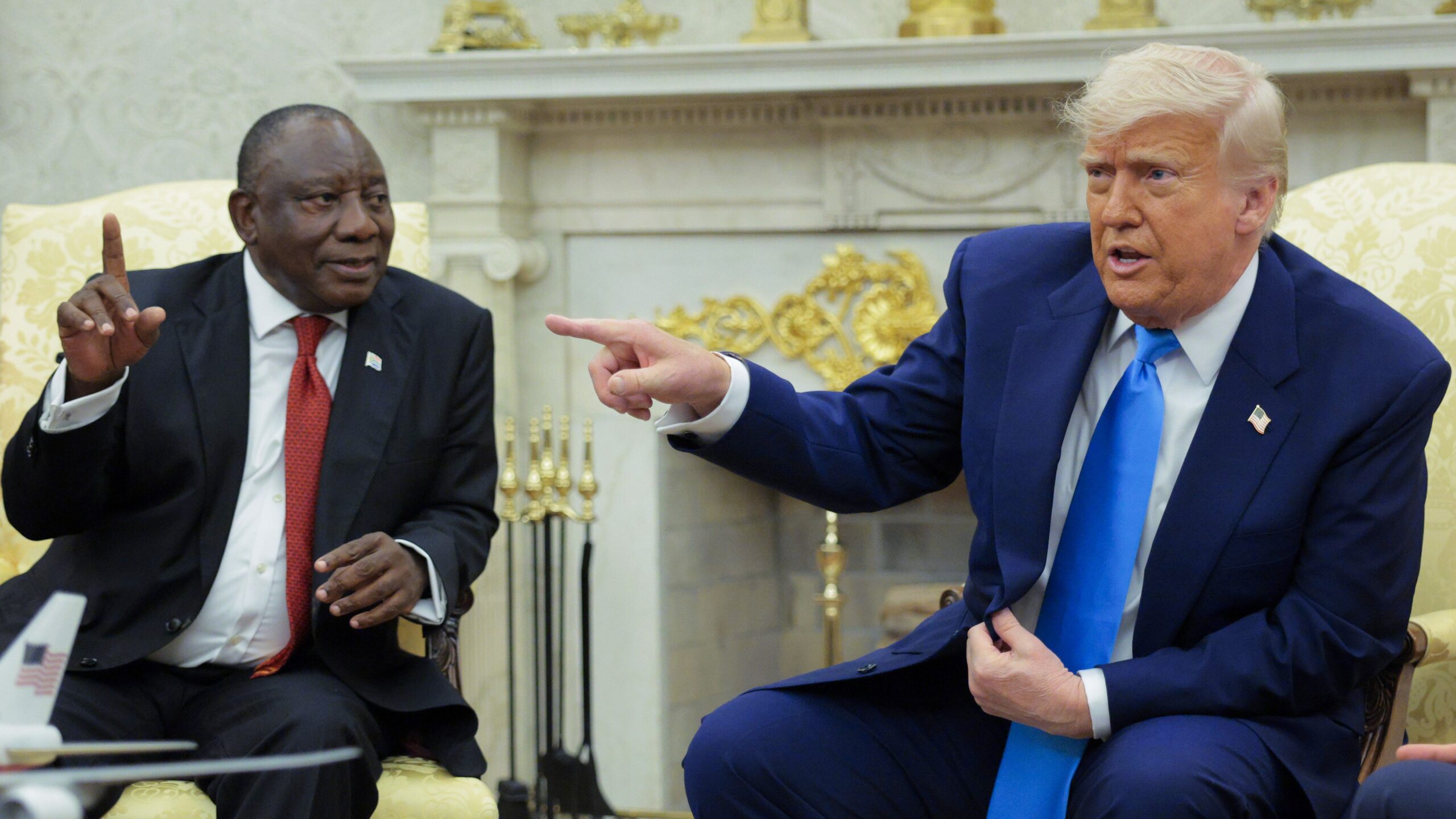The recent visit of South African President Cyril Ramaphosa to the White House was punctuated by a jarring and deeply troubling moment: US President Donald Trump, during a meeting, presented footage of what he claimed were “burial sites” of murdered white farmers in South Africa, accompanied by a barrage of white crosses lining a road. The video, viewed nearly 55 million times, sparked immediate outrage and fueled a dangerous narrative. But what’s the reality behind the images, and why is this misinformation so concerning?

A Misinterpreted Protest, Not a Massacre
The footage, initially presented as evidence of a systematic slaughter of white farmers, is actually a recording of a protest that took place near the city of Newcastle, South Africa, on September 5, 2020. The protest was triggered by the brutal murder of married couple Glen and Vida Rafferty on their farm in August 2020. Hundreds of volunteers erected hundreds of symbolic wooden crosses along the route, as part of the “Move ONE Million” group’s procession. A large banner read: “President Ramaphosa, how many more must die???”.
The footage was captured at the FNB Stadium in Johannesburg during the Economic Freedom Fighters (EFF)’s tenth-anniversary celebration in August 2023, where the left-wing party’s leader, Julius Malema, famously declared, “Kill the boer, kill the farmer.” This phrase, a relic of the apartheid era, has been repeatedly classified as hate speech in South Africa.

A Dangerous Conspiracy and a Persistent Inequality
Trump’s presentation of the footage as evidence of a “massacre” is part of a larger, dangerous conspiracy theory that has been circulating in right-wing circles for years – the “Great Replacement.” This theory falsely claims that white farmers are being systematically murdered, often linked to racial tensions and land ownership.
However, the reality is far more complex. While the murder of Glen and Vida Rafferty was a horrific tragedy, it doesn’t represent a systemic genocide. South Africa’s agricultural landscape is deeply impacted by the legacy of apartheid, with land distribution remaining profoundly unequal. According to a 2017 report by the South African government, white people own approximately 72% of agricultural land, while black South Africans only own around 4% of individually registered farms. White South Africans represent only 7.8% of the total population.
South African farmer Theo de Jaeger, head of the Southern African Agri Initiative, has been clear: “The challenges we have are not only challenges for white farmers, there are even bigger challenges for black farmers.”

Ramaphosa’s Response and the Bigger Picture
President Ramaphosa swiftly distanced himself from the inflammatory statements, emphasizing that they do not represent government policy. The situation highlights the ongoing struggle for land reform in South Africa, a complex issue rooted in the country’s history of racial segregation and inequality.
Sourced from https://www.dw.com/
Additional Details:
